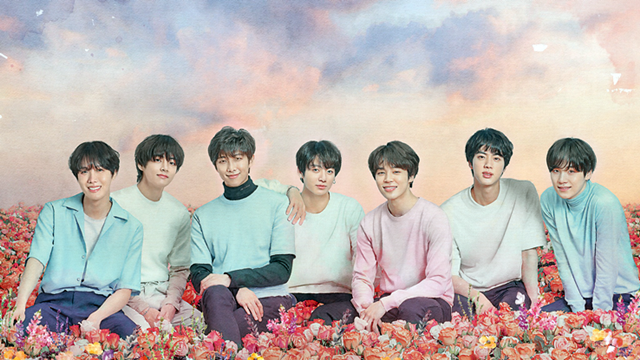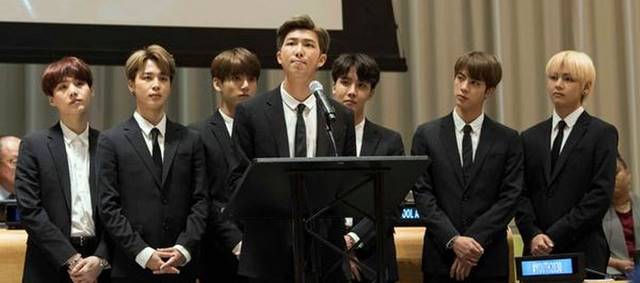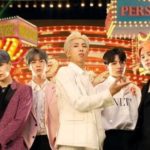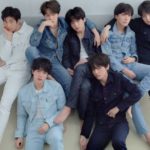By Jae-Ha Kim
jaehakim.com
September 17, 2019
☆☆☆☆
“Everyone’s panicking except for me.”
RM is calm, but he understands why his bandmates are nervous. It’s September 24, 2018. In a matter of hours, BTS would appear at the United Nations for the launch of Generation Unlimited. While Suga, Jimin, Jungkook, J-Hope, Jin and V showed their solidarity and support by standing respectfully behind him, RM delivered an impassioned speech in front of dignitaries from around the world. For more than six minutes, the group’s leader spoke in English — a language he taught himself by watching old episodes of “Friends” — advocating for a world in which people could love themselves not only for all the great things they would accomplish, but also for all the mistakes they’ve made (and will make in the future).
The one-two punch of Episodes 3 and 4 will gut you, because of the power of the group’s words and actions. There are times viewers may want to cry along with the band members. Just as surely, some of those tears will be of victorious joy.
What I’ve really enjoyed about this series is seeing the impact that J-Hope has on the group’s stage presentation and his bandmates’ willingness to listen to each other without harboring resentment. Watching him talk to the other men about their strengths and, yes, their weaknesses, I can imagine him being a director one day in whatever medium he chose. Dancing is embedded in him, but he has that ability to take a piece of choreography and teach it to people who aren’t as comfortable translating that feeling through dance.
The dynamics between RM and J-Hope was especially telling. We’re used to watching RM offer words of leadership and the others listening attentively. Here, RM acknowledges that “in situations like this, I need to be humble and listen.”
They all listened when a staff member gathered them together to talk about some improvements they could make on stage. It wasn’t just a surprise attack filled with criticism about the flaws that she saw. Rather, it was a collaborative effort where the group was able to discuss what worked for them, what didn’t and, more importantly, what they could do to address the issues within the limitations of their very human bodies.
Throughout this series, each member has talked about their flaws, more than their achievements. RM says it’s frustrating for him to hear praise about being such good musicians and performers when in his eyes, there’s still room for so much improvement.
There have been countless think pieces on who will be the next BTS or how someone could create the next BTS. This is an irrational concept, because what they essentially are saying is, “How do we conjure up another group that gets this much press and makes this much money?” If money was all BTS was after, they could retire now and be set for life. But what drives them is the relationship they have with each other and their knowledge of the influence they have on others, which can be channeled into a greater good.
I know. I sound like a pointy head talking about a music group being able to be this influence. But it’s a fact. The group’s career has been built on how they can provide entertainment in a way that brings happiness to their listeners, which in turn would influence their fans to do good for others.

Suga describes their tours as marathons. “That’s what a tour is like,” he says. “But we have to run them like it’s a 100-meter sprint.”
Jungkook adds that concerts are fun after resting for two days. They’re more relaxed but also energized. I thought about his words and their 2019 stadium tour. When I initially saw that the dates were a week apart, I thought, “That’s a long time off.” But in retrospect, I realize they (and their staff) planned it that way to adjust to what they need in order to perform at the level that they do.
“We are so comfortable with each other and that can also be a detriment,” J-Hope says. “We’re being lax and we need to tighten up.” When V suggests they goof around less on stage, J-Hope says there’s nothing wrong with having fun, but not at the expense of their presentation.
Jin says that he was slapped awake at the realization that their fans may not get a chance to see them for another year or more. Their responsibility is to give the fans a show that is worthy of them.
It was sweet to get glimpses of the group connecting with home. After a concert, Jimin is in the car heading back to their hotel. I can hear a series of alerts from Kakao in the background. (I checked my phone to make sure it wasn’t for me. LOL!) He’s talking to his dad and asks if it’s raining back home in Busan. His father inquires about his health and asks if he has geem/김. Jimin assures his father that he’s fine and has plenty of geem. I can hear his dad cheer him on with a robust, “Fighting!” (In Korean, fighting doesn’t have the same meaning as in English. Koreans use it as a word of encouragement.) After he gets off the phone, Jimin laughs. “My dad says he will bring us geem. We have so much of it already.”
There is a moment where Jungkook talks about how he had imagined his stage persona as a different being of who he was in reality. “I’m working on the differences and trying to be the same on and off stage. Revealing who I really am behind the mask of the artist is daunting.”
The words are beautifully juxtaposed with images of V singing “Singularity,” surrounded by dancers wearing masks.
Though they have won countless awards and sold millions of records, the one that they acknowledged as being particularly meaningful was being awarded the Hwagwan Orders of Cultural Merit in Seoul. “It’s an honor,” RM says, “because we did something worthy of national significance.”
At New York’s Citi Field, Jin says, “We are honored to have played our first ever stadium concert in the United States. Thank you, ARMY!”
As the episode finishes, viewers are left with RM’s final words of his UN speech: “I’m an ordinary 24-year-old guy. Maybe I made a mistake yesterday, I have many faults and many more fears, but I’m going to embrace myself as hard as I can and start to love myself gradually. What is your name? Speak yourself.”
Earlier this summer, I wrote a short article for Variety about the theatrical release of “Bring the Soul: The Movie.” Perhaps confused about the title — and knowing little about the band he was mocking — “The Simpsons” voice actor Harry Shearer said the documentary’s title was “about as appropriate as a hip-hop group doing a movie called ‘Bring the Kimchee.'”
Watching these episodes, I thought about these words from a progressive white celebrity, which reflect the prejudice that BTS faces even in this day and age. His dismissive words were borne from ignorance, rather than hatred, and also a lack of knowledge of the true meaning of what it means to bring the soul.
Airdates: The six-part docuseries debuted on August 27, 2019 on the group’s Weverse app. Read more of my reviews of “BTS: Bring the Soul” here: (Episode 1) (Episode 2) (Episode 5) (Episode 6)
© 2019 JAE-HA KIM | All Rights Reserved







2 thoughts on ““BTS: Bring the Soul”: Episodes 3 & 4”